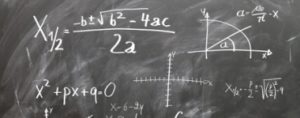Do you know the science behind calories and how to use that to help you achieve your goals?
I’m sure you hear people talk all the time about “counting calories” or “watching their calories”.
But what are calories, and if you’re trying to lose weight, what do you need to know about them?
If you remember back to your high school science days, you may recall that a calorie is a measure of heat or energy. All foods you eat bring in calories. All activities you do burn up calories.
So you think if you eat fewer calories than you burn up, you’ll lose weight, right?
Well… yes. But there’s more to it than that.
MYTH: Calories measure how much energy you take in and burn up.
Not quite. The definition of a calorie has changed over time from a measure of heat conservation with regard to steam engines (it was the unit of heat required to raise 1 gram of water 1 degree Celsius), to an estimate of a food’s carbohydrate, protein, and fat content.
The problem is your body isn’t a steam engine; it runs on chemical energy. So don’t just track your calories; also track your carbohydrates, fats, and proteins.
MYTH: All calories are the same.
Actually, even if they have the same calorie count, saturated fats – like butter, whole milk, and fatty meats – may not make you feel as full as unsaturated fats that come from plants, like olive oil, avocado, and nuts.
One study (at Penn State) shows that even if the caloric intake is identical, dieters who ate more whole grains rather than refined grains lost more belly fat.
If you need quick energy, carbohydrates and fat are your best friends. But if you want a longer, slower burn of energy, protein is the way to go.
So be aware that the quality of the food where you get your calories from is just as important as the number of calories you consume.
MYTH: To lose weight you have to count your calories.
Counting calories can sometimes seem like doing a really really hard math problem. So is it worth it?
In a study done at the Univ. of California, San Francisco, 121 women were assigned to one of four diets. Some tracked their calories (no more than 1200); some ate normally but recorded their calories; some ate 1200 calories without tracking; and some ate normally, without tracking.
After three weeks, the women’s cortisol levels were measured. As you might expect, the women who kept track of their caloric intake had increased levels of cortisol, a stress hormone. So did the women whose diets were restricted, without having to count on their own.
Since cortisol increases appetite and cravings for fatty, sugary foods, it’s a sure bet that that makes it very hard to lose weight.
MYTH: It’s the total number of calories that matter.
Not quite. If you binge on a big breakfast and a big dinner, with very little food in between, you’re not likely supporting your body as well as if you ate the same number of calories spread out throughout the day. That’s because your body is always using energy, and needing to replace that energy.
Make sure you take in as many calories as your body needs to function optimally, or you will slow down your metabolism over time, which would actually make it harder to lose weight.
MYTH: Exercise is the best way to burn calories.
The truth is, most calories fuel your body’s basic processes: digestion, cell growth, healing, transporting oxygen, etc.
Only about 30% of your calories can be burned in the gym, even if you’re a fitness fanatic.
 But you do also burn calories in your regular activities: gardening, walking the dog, chopping vegetables, running after the bus as it drives down the road… So get up from your desk at regular intervals and burn off a few more calories!
But you do also burn calories in your regular activities: gardening, walking the dog, chopping vegetables, running after the bus as it drives down the road… So get up from your desk at regular intervals and burn off a few more calories!
It’s no secret that working out is a fantastic way to get into a caloric deficit – and that is what most of us need to jump start the weight loss process.
Conclusion: The more you know about calories and how to choose them wisely, the better off you will be in achieving your health and fitness goals.
The AFC Team
PS, Yes, you do have to watch your calories, but there are a lot of misconceptions about how to manage your diet and exercise. Need some help? email afctrainer@live.com